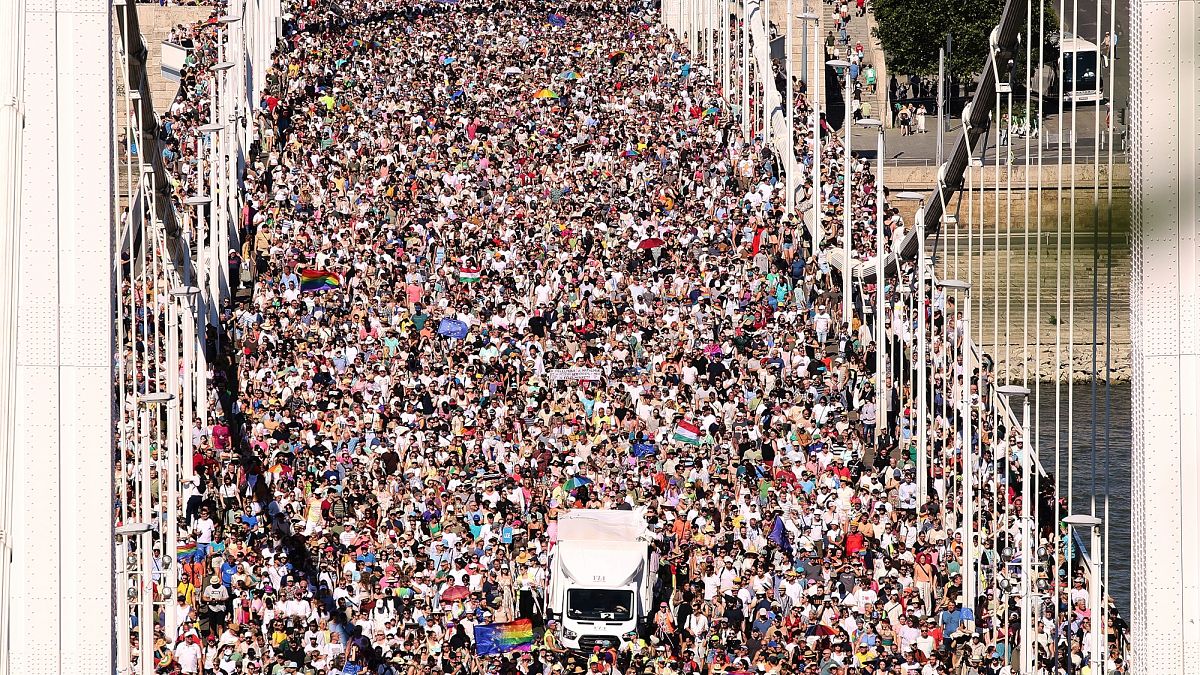

The colorful celebration of Budapest Pride took a momentous turn this year, as tens of thousands of participants peacefully converged in the Hungarian capital to mark its 30th anniversary. This significant gathering unfolded despite the Hungarian government’s official ban, fostering a spirit of defiance wrapped in unity and peace. Notably, the event concluded without any disturbances, harmonious in its execution as police maintained a respectful distance and counter-demonstrators were kept at bay.
In an admirable show of support and solidarity, European Union officials along with members of the European Parliament made their presence felt. Commissioner Hadja Lahbib, accompanied by 70 MEPs, traveled to the event, underscoring their opposition to the ban imposed by Prime Minister Viktor Orbán’s government. Their attendance sent a clear message of support for the fundamental rights and freedoms that the Pride march embodies.
The vibrant energy of the Pride march was a testament to the resilience of the LGBTQ+ community and its allies, who stood firm in the face of regulations and potential legal repercussions highlighted by the Hungarian leadership. Organizers of the event expressed concerns over attempts to curtail the peaceful expression of identity and rights, yet were buoyed by the wide-ranging support from both local and international participants.
This gathering echoes wider regional issues, as seen in Malta—a nation recognized for its progressive stance on LGBTQ+ rights while maintaining strict abortion laws. This duality highlights the complex tapestry of policy and public sentiment that can exist within a single country, encouraging ongoing dialogue and advocacy for comprehensive human rights.
Furthermore, the human rights landscape faced another critical moment in East Africa, where activists Boniface Mwangi and Agather Atuhaire are boldly stepping forward. Their intention to sue Tanzania’s government over allegations of illegal detention and torture seeks to hold authorities accountable and shine a light on the repression intensifying ahead of upcoming elections. These instances of bravery emphasize a shared quest for justice and dignity across borders.
Similarly, as Budapest Pride marched forward with courage and compassion, it exemplified a powerful form of peaceful protest, drawing attention to the larger discourse on civil liberties worldwide. Amidst governmental threats of “legal consequences,” this peaceful demonstration became a beacon of solidarity and a call to unite against attempts to suppress individuality and freedom of expression.
As Budapest echoed with the sounds of unity and resilience, it served as a reminder of the ongoing need to safeguard human rights universally. This event, much like others taking place across varied geographies, indicates a growing global consciousness and commitment to fostering an inclusive and understanding society, propelling us towards a future built on respect and equity for all individuals, regardless of identity or orientation.
Source: {link}
